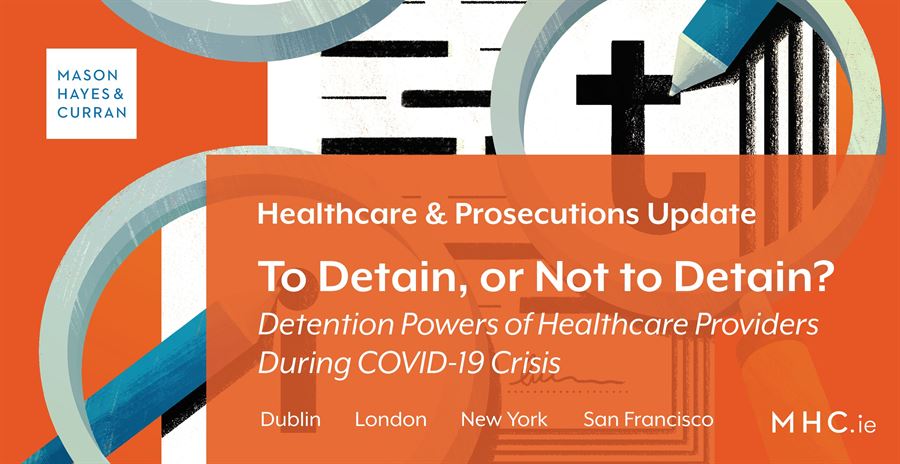
The ongoing COVID-19 pandemic has given rise to drastic changes in all walks of life, to protect public health. But what happens when an individual refuses, or is unable, to follow public health advices, to the extent that members of the public are put at risk? We consider both the old and new legislative powers of healthcare professionals to detain affected persons under the Health Act 1947.
Section 30
Section 30 places an obligation on both individuals who are a probable source of an infectious disease, and persons in charge of an individual who is a probable source of an infectious disease, to take “every other reasonable precaution” to avoid infecting others. The latter category could almost certainly be taken to include clinical directors of healthcare facilities, such as hospitals and residential care placements. Failure to comply with this section is a criminal offence, punishable by fines. Caution is advised against placing any significant reliance on this section, due to the clear lack of safeguards for the rights of the individual. However, it may be permissible to utilise powers under Section 30 in very limited circumstances. This might be where a patient who is a probable source of infection refuses to isolate, where that refusal presents a significant risk to patients/staff, where you have not yet completed the section 38/38A process and where it is only utilised for a very short time. It might also be possible to invoke the doctrine of necessity in those circumstances.
 Section 38
Section 38
Medical Officers of Health (MOH), who are essentially chief medical officers for each division of the HSE, are permitted under section 38 to detain someone who is a probable source of infection. To justify an order under section 38, the person cannot be effectively isolated at their home, and their detention must be necessary to safeguard against the spread of infection. The MOH’s order must be furnished to the HSE and the Minister for Health. The detained person has a right to make an appeal against the order at any time to the HSE or the Minister. It is an offence to resist an order made under section 38.
This section has had the benefit of judicial scrutiny, in the High Court decision VTS v Health Service Executive & Others [2009] IHEC 106, where the judge upheld the constitutionality of the powers granted under section 38.
Section 38A
The insertion of Section 38A in to the Act to specifically combat the spread of COVID-19 gives healthcare providers further powers to detain potential sources of the infection. The powers to order detention rest with the MOH. Each case should be considered on its merits, in line with public health guidelines. The MOH must be satisfied of the following four criteria before making a section 38A order:
-
The individual is a potential source of infection
-
The individual is a potential risk to public health
-
Order for detention and isolation is appropriate
-
Cannot, or refuses to be, isolated at their own accommodation
Once an individual’s detention has been certified in writing by the MOH, a medical assessment must be carried out within a period of 14 days. A person subject to a section 38A order can request an assessment by another MOH, who has the power to certify the person’s release if they are not deemed to be a potential source of infection. Section 38A also creates an offence to resist the provisions of a section 38A order.
It is worth noting that a ‘potential source of infection’ is very broadly defined, and includes not only persons who may be suffering from COVID-19, but also persons who have attended events or travelled from geographical areas where other persons with the virus were believed to be.
Conclusion
The powers provided by section 30, 38 and 38A of the Health Act 1947 are clearly far-reaching in their scope, but ultimately necessary in the battle against the spread of COVID-19. Healthcare providers will need to ensure that these legislative powers are exercised carefully and adopt similar measures to those provided for in other types of detention orders.
Consideration will need to be given to procedures and the individual’s understanding of this at an early stage. To discuss how your organisation could implement these policies, contact a member of our Healthcare & Prosecutions team.
The content of this article is provided for information purposes only and does not constitute legal or other advice.




